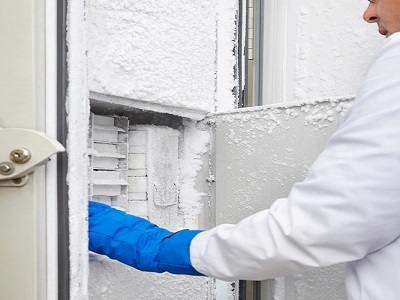2022 Freezer Challenge
Calling all labs with cold storage! Join the annual Freezer Challenge at Cornell University where labs perform key management practices to achieve greater energy efficiency, improve sample accessibility, reduce risk, save costs, and boost freezer reliability. Register by April 30th
How to Participate
Join your fellow Cornell labs and thousands of scientists around the world in implementing best practices in cold storage management this spring (April 30th - June 30th). During the challenge, you will be prompted to take key actions to improve freezer performance in your lab, and then you will record what actions you took through an online scoresheet (see example).
Hosted by the Campus Sustainability Office (CSO) & Environment, Health and Safety (EHS) at Cornell University, as part of the International Laboratory Freezer Challenge.
-
Who: Cornell labs with cold storage (fridges, freezers, cold rooms)
-
Prizes:
-
All labs who register will be entered to win a deluxe pizza party for their teams, with two chances to win (winners selected in May & June).
-
Top competitors in the international challenge will earn an award and be recognized at the annual I2SL Conference in October.
-
-
Additional Incentives:
-
All participating labs will receive a customized report estimating annual cost & energy savings based on recorded actions.
-
Labs will have access to our new Defrost Your Freezer program, where you can sign up for free, short-term rentals of Ultra-Low Freezers (ULTs) from Cornell's Air Conditioning & Refrigeration (ACR) Shop - details coming soon.
-
-
Questions: Contact sustainability@cornell.edu or info@mygreenlab.org
Goals of the Challenge
Labs are our biggest energy users on campus (understandably so), and therefore have the greatest potential for reducing energy waste through best practices in equipment management. Second only to fume hoods, your lab's cold storage (refrigerators, freezers, cold rooms) is likely the next biggest category of energy consumers in your lab space.
By taking simple actions, you can improve the performance & reliability of your equipment, enhance sample accessibility, reduce risks, and save costs and carbon emissions that contribute to climate change, helping Cornell reach our carbon neutral campus goal by 2035.
So far, Cornell labs have collectively saved over 86,000 kWh per year and $6,400 in electricity costs by participating the Freezer Challenge. Last year, 222 labs from more than 100 different research institutions participated, saving a combined 4.6 million kWh of electricity annually across from 17 countries - the equivalent of reducing carbon emissions by 3,260 metric tons.
Get your laboratory engaged in doing science more sustainably.
Fast Fact: One ultra-low freezer can consume as much energy as a single-family home
Key Actions for the 2022 Freezer Challenge
Labs play an important role in reducing campus energy use and greenhouse gas emissions. By prioritizing better freezer management practices, Cornell labs can contribute to a more sustainable campus. Based on a recent Ultra-Low Freezer (ULT) inventory, key actions for this year's Freezer Challenge include: Defrosting your Freezers, Maintaining ULTs, Inventorying Samples, and Purchasing Wisely. Register today to receive guidance & resources during the challenge.
-
Defrosting your Freezers
Brushing out frost and defrosting your freezers are key strategies for improving freezer performance, reliability, and longevity. -
Maintaining ULTs
Regular maintenance can significantly reduce ULT energy waste. Contact Cornell Air Conditioning & Refrigeration Shop (ACR) to see if your ULT is functioning optimally. -
Inventorying Samples
Removal of unneeded or unviable samples from cold storage units, freeing up that space for new samples without having to purchase additional refrigerators and freezers.
Benefits of Participating
-
Reducing energy consumption, costs, and environmental impact of the lab
-
Learning and applying proper cold storage maintenance techniques to help avoid future failures
-
Removal of unneeded or unviable samples from cold storage units, freeing up that space for new samples without having to purchase additional refrigerators and freezers.
-
Reduced costs associated with maintaining extraneous cold storage units.
-
Improved researcher access to and security for viable samples.
-
Development of ongoing cold storage management practices that support efficiency and maximize lab space utility.
-
Participation recognition, plus awards!
